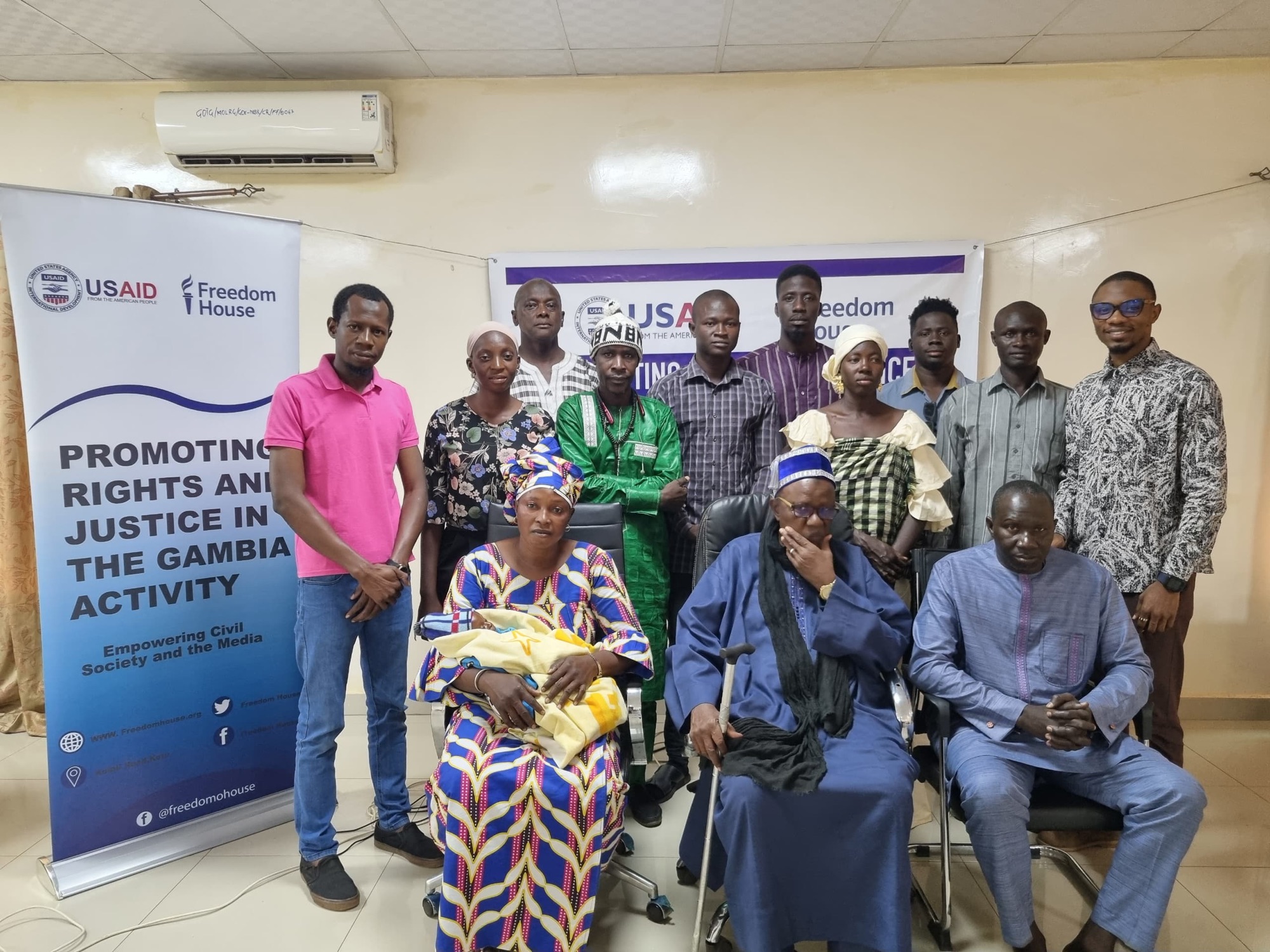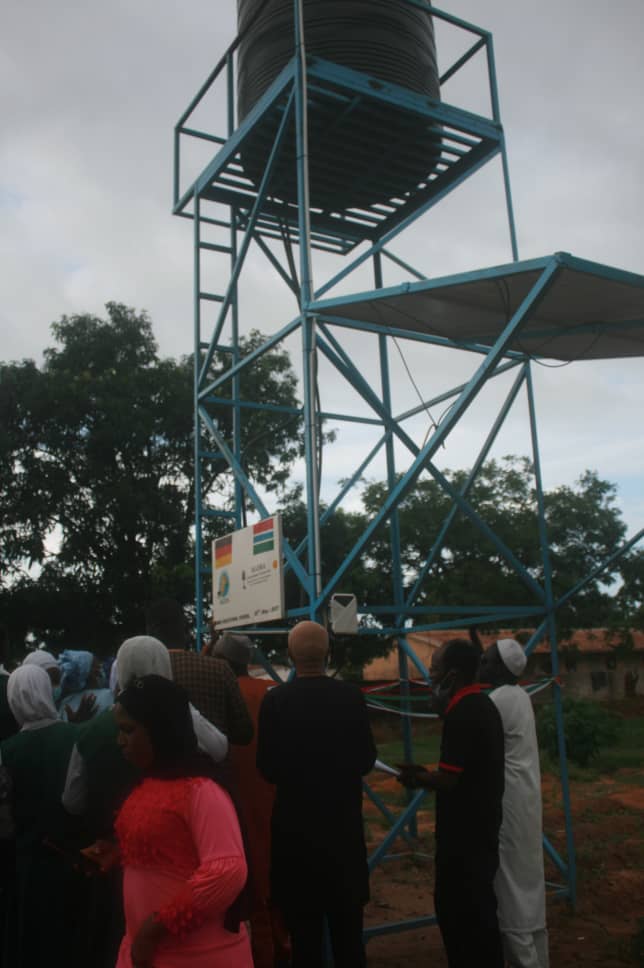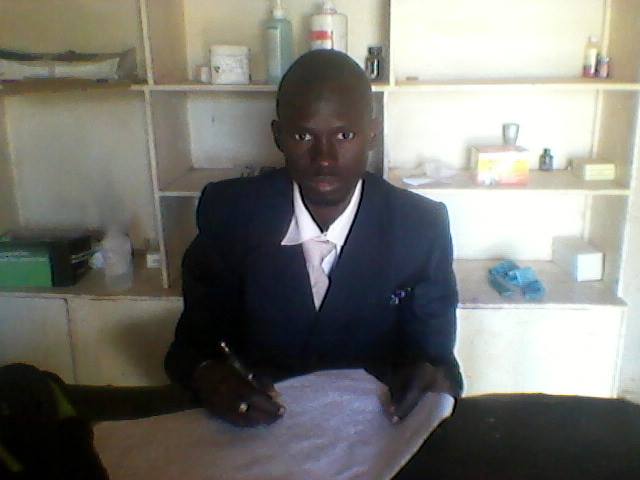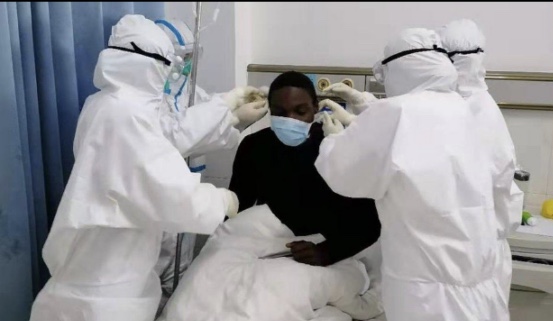By: Haruna Kuyateh
Freedom House, with support from USAID, organized a two-day training for the Board of Directors of North Bank Community Radio (NBCR) as part of the “Promoting Rights and Justice in The Gambia” activity. The training aimed to enhance the participants’ understanding of the principles of community radio, distinguishing it from other types of radio, and understanding its underlying logic. This event took place at the Governor’s Office in Kerewan, North Bank Region.
Chief Fabala Fadia Kinteh, the Board Chairman of North Bank Community Radio, described the training as essential. He noted that it would empower both board members and staff to operate the community radio effectively. He added that the training would aid in disseminating vital information and contribute to social changes that improve livelihoods. The Board Chair encouraged citizens to support the operation of the radio.
Mustapha Ceesay, a journalism trainer at MAJAC and the lead facilitator, emphasized the importance of building the capacity of board members and staff. He explained that community radio addresses critical social issues at the local level, mitigates poverty and social exclusion, empowers marginalized rural groups, and serves as a catalyst for democratic processes and development efforts.
Governor Lamin Saidykhan expressed the government’s commitment to sustainable development and reiterated the importance of information sharing. He assured the participants of his office’s full support for the effective management and dissemination of information. The governor praised the staff and management of North Bank Community Radio for their selfless service in informing and educating the public, calling on the community, institutions, NGOs, and philanthropists to support the radio station.
Jerreh Dibba, Manager of North Bank Community Radio, highlighted the significant support provided by Freedom House through capacity building for staff and board members. He stated that this assistance would strengthen their capacity and urged the management of Kerewan Area Council to provide funding for community radios to cover their operational costs. He described the provision of equipment as crucial for enhancing their capabilities and programming. He also called on development partners to support the radio with motorcycles and to increase solar panel capacity for timely information dissemination and to reduce expenses related to cash power.
Awa Jobe, a presenter, urged the board to assist the radio in resource mobilization to attract skilled individuals. This support would help strengthen the capacity of volunteer staff to effectively disseminate messages.
The training covered several topics, including: the purpose of community radio, community radio dynamics and programming approach, program and content development, and practical exercises on creating participatory programming. The expected outcomes of the training included increasing understanding of the principles of community radio, learning participatory approaches to create effective programming and management tools, understanding the needs of the community and the audience, stimulating community participation (e.g., involving farmers and technicians), developing standard policies, reviewing board statutes, and finalizing project work and presentations.
Freedom House also provided equipment to North Bank Community Radio, including laptops, desktops, printers, mixers, recorders, headphones, hard drives, and ceiling fan.





